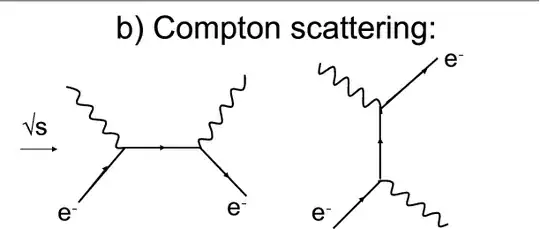Since an electron is never free of its own electromagnetic field, how can the Compton effect occur?
1 Answers
Since an electron is never free of its own electromagnetic field, how can the Compton effect occur?
The electron is a quantum mechanical entity in the standard model of particle physics, which is a quantum field theoretical model. This model is continuously validated by elementary particle experiments.
In quantum field theory, all the particles in the table of the standard model are a field that covers all space time, an electron field, a neutrino field etc. This field is represented by the plane wave solution of the corresponding quantum mechanical equation, the Dirac in the case of the electron. On this electron field creation and annihilation operators act, and that mathematically leads to the integrals that the Feynman diagrams represent. Here is Compton scattering in a Feynman diagram which represents the lowest orders for photon electron scattering
The statement "Since an electron is never free of its own electromagnetic field" is vacuous in the quantum framework, the electron quantum mechanical entity always carries a charge, the concept of "field" has been generalized to the quantum mechanical electron field , and photon field , on which these integrals are calculated.
That is how nature is successfully modeled at the level of an electron and photon.
- 236,935
